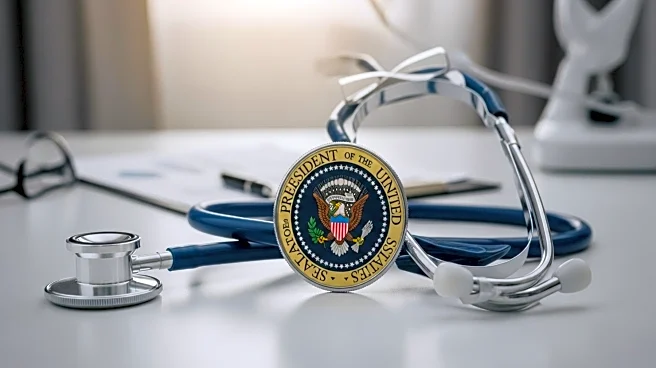What's Happening?
U.S. Health Secretary Robert F. Kennedy Jr. has called for the Centers for Disease Control and Prevention (CDC) to align with President Trump's health agenda after the firing of CDC Director Susan Monarez and the resignation of several top officials. The White House stated that Monarez was dismissed for not supporting the president's health initiatives, which include making America healthy again. Kennedy has initiated an investigation into the rise of autism rates, attributing them to environmental toxins, despite lacking scientific evidence. The leadership shakeup at the CDC follows Kennedy's changes to vaccine policies, including replacing expert advisory panel members with anti-vaccine activists. The CDC has faced criticism for its recent decisions on COVID-19 vaccine recommendations.
Why It's Important?
The changes at the CDC could significantly impact public health policy and the agency's role in managing infectious disease outbreaks. Kennedy's stance on vaccines and his influence over the CDC may lead to shifts in vaccine policy, potentially affecting public trust and vaccination rates. The agency's leadership upheaval may also affect its global reputation and ability to respond to health crises. The firings and resignations highlight tensions between scientific integrity and political agendas, raising concerns about the independence of health agencies under the current administration.
What's Next?
The Senate Finance Committee is set to question Kennedy on the CDC shakeup and President Trump's health agenda. Oversight by the Senate Committee on Health, Education, Labor, and Pensions is expected, as expressed by Chairman Senator Bill Cassidy. The CDC is preparing to present findings from Kennedy's autism investigation in September, which may influence future regulatory actions or recommendations. The agency's ability to maintain its scientific credibility and operational effectiveness will be closely monitored by stakeholders.
Beyond the Headlines
The leadership changes at the CDC may have long-term implications for the agency's role in public health and its ability to operate independently of political influence. The situation raises ethical concerns about the balance between political directives and scientific evidence in health policy. The broader impact on public trust in health institutions and vaccine safety could have lasting effects on public health outcomes and societal attitudes towards vaccination.










